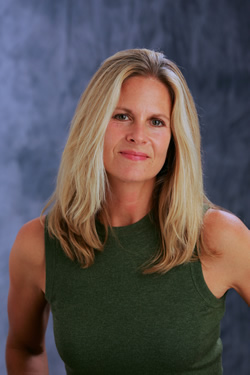|
In place are the disparate parts that make it up: the old waterfront mansion built by a circus magnate on the Gulf, where I attended a wedding once. The compelling situation in a dream I couldn't shake. The characters and their mysterious relationship—the woman carrying bed sheets up marble stairs, the man in gray slacks she recognizes, but does not know from where. Usually, this is all it takes to start a story, for the pieces, occurring from some inner mechanism I do not question, to align and tell me something I hadn't suspected. I like to be surprised. I never want to know too much.
Other stories that came together this way began with less. A house I saw once at the end of a shell lane flanked with beech trees, a stormy-looking Long Island Sound beyond it; Lydia E. Pinkham's tablets for women's complaints; The news of a couple's stillborn child and the photographs they had taken with her. I acquire the pieces of the story in a haphazard way by being open to them. I've read this advice from other writers—how we must cultivate our ability to absorb things we see and hear around us, to view them in a multi-dimensional way, and only by doing so will we glimpse their usefulness. I abide by this method to the point that I've noticed people guarding what they say. My sister-in-law presented me with a Careful, Or You'll End Up In My Novel T-shirt. I am like a cat given a collar with a bell.
This time, the story pieces yield a handful of pages that are flat, and lifeless. Domestic tasks have always interrupted the work, and have become in many ways a part of it. Scrubbing bathrooms, vacuuming, folding laundry, dusting tables and the endlessly reproducing framed family photos are mindless activities that help the process along. I bake a banana cake and the characters shift and move around and talk. I polish an old, silver candelabra and in the story world the woman and a man named Dr. Seckinger prepare the mansion for a group of refugees. Dr. Seckinger calls the two of them "Bert and Mary" from the "Mary Poppins" film. He says, "Gov'nor," sings "Chim Chiminy, Chim Chiminy, Chim Chim Cher-ee!" And yet I have cleaned, cooked, entertained, and I do not know who the refugees are, why they cannot remember the past, why each morning they leave the mansion to roam the seaside town like tourists. While they are gone the woman seeks the bed where the man she feels she knows sleeps at night, and later that morning she follows the refugees out of the mansion, takes a bus to a shopping district where she discovers the man with a woman. She follows the couple to a house on the beach. The end comes too soon, and there is no surprise. The characters, their desires, remain unknown. But I am stubborn and refuse to give up on this one.
It is May, and we are inundated with coupled flies, Plecia nearctica, "love bugs." Trapped in my stalled story, I read about the circus magnate, the circus's winter quarters. I examine foggy black and white photos of 1920s circus performers—aerialists posing in spangled leotards and tights, and elephants being unloaded from railroad cars. And then one morning I discover two peacocks in my suburban neighborhood. The first flaps up onto the roof of a cement-block ranch house, then flaps down to the patchy front lawn and fans its brilliant plumage. Its mate is there in a copse of crepe myrtle and over-grown ficus. I pause and stare, and the peacocks stare back. When I ask a woman I meet walking, she tells me others in the neighborhood have seen the birds, but no one knows where they come from. Days later, I witness a van lose its cargo of glass: three huge panes fall and shatter in the street. The peacocks are there, hidden along the gardenia hedge in a nearby yard. I hear their cry, startling among the calls of cardinals and jays. Two men climb from the van and the three of us look at the glass in the street. It is like polished obsidian, and I cannot say which is more strangely beautiful—the peacocks strutting past us into the next yard, or the glass, hit by the morning sun that filters through the oaks. I am reminded that we cannot allow mystery to blind us as we write. It is always the place we seek, pass through, and emerge changed—the story the only evidence of where we've been.
|


